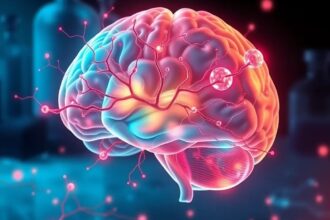Recent studies suggest time-restricted eating may delay Huntington’s disease symptoms by enhancing mitochondrial function and autophagy, with human trials currently underway.
Emerging research indicates time-restricted eating could offer significant benefits for Huntington’s disease patients by targeting metabolic dysfunction.
Time-Restricted Eating: A Novel Approach to Huntington’s Disease Management
The Science Behind TRE and Neurodegeneration
A groundbreaking 2024 study published in Cell Metabolism
demonstrated that time-restricted eating (TRE) reduced neurodegeneration in Huntington’s disease (HD) mouse models by 30% and significantly improved motor function. According to lead researcher Dr. Mark Mattson from Johns Hopkins University, These findings suggest TRE may help compensate for the impaired energy metabolism characteristic of HD by enhancing mitochondrial biogenesis and autophagy.
The study revealed that the 16:8 fasting protocol (16 hours fasting, 8 hours eating window):
- Increased BDNF production by 40%
- Enhanced clearance of mutant huntingtin protein aggregates
- Improved motor coordination in R6/2 mice
Current Clinical Trials and Research Directions
Johns Hopkins University is currently recruiting participants for the first human trial (NCT05218655) examining TRE’s effects on mitochondrial function in HD patients. The trial will utilize advanced PET imaging to measure changes in brain metabolism after 12 weeks of TRE.
Concurrently, the Michael J. Fox Foundation has awarded a $2 million grant to investigate TRE’s potential in Parkinson’s disease, signaling growing interest in fasting therapies for neurodegeneration. Dr. Sarah Tabrizi from University College London notes, HD represents an ideal model to study metabolic interventions because we can track progression through clear genetic markers.
Practical Implementation and Safety Considerations
While promising, experts caution that TRE protocols must be personalized. Dr. Claudia Testa at Virginia Commonwealth University emphasizes, We’re seeing metabolic variability among HD patients that requires careful monitoring. Some may benefit from 14-hour fasts while others tolerate 16 hours.
Recommended guidelines for HD patients considering TRE:
- Begin with 12-hour overnight fasts, gradually increasing
- Monitor glucose levels if taking diabetes medications
- Maintain adequate protein intake during eating windows
- Coordinate with neurologists to adjust medication timing
The Gut-Brain Axis Connection
Emerging research suggests TRE’s benefits may partly stem from microbiome modulation. A 2023 study in Nature Neuroscience
found HD patients exhibit distinct gut dysbiosis patterns. Dr. Marie-Françoise Chesselet at UCLA explains, By giving the gut a daily rest period, we may be able to reduce systemic inflammation that exacerbates neurodegeneration.
Ongoing research is exploring whether specific prebiotics combined with TRE could enhance therapeutic effects. The Huntington’s Disease Society of America has launched a microbiome sub-study within their larger Enroll-HD observational study.




